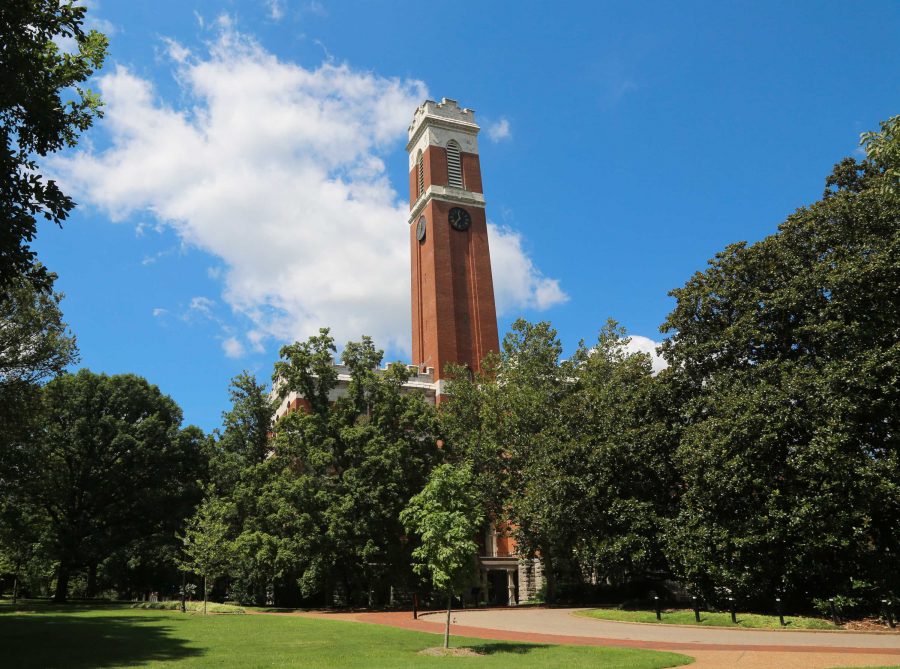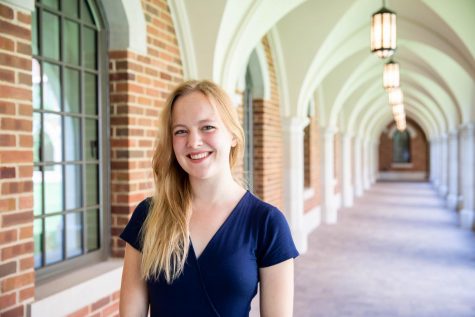Over the summer, the Heterodox Academy (HXA) released their second iteration of the Guide to Colleges, which ranks the top 150 US universities based on their openness to viewpoint diversity. The academy’s mission is to increase the amount of viewpoint diversity in academia, as they claim that academia leans overwhelmingly left. Vanderbilt received a moderate HXA score of 43, placing it in the upper half of universities on the list. While Vanderbilt received high marks for endorsing the Chicago Principles on free expression this spring when updating the faculty manual, points were lost for undefined policies and a rating by the Intercollegiate Studies Institute (ISI) guide to Choosing the Right College 2014-2015 that considers Vanderbilt an “unsafe zone” for conservative students.
Mariano Sana, Vanderbilt associate professor of sociology, is a member of HXA, and while he was not part of the team that put together the college guide, he said he joined HXA because he wants to help make academia more open to divergent views.
“I think diversity of viewpoints and debate help us move forward in multiple ways,” Sana said. “Academia, especially the social sciences and the humanities, is overwhelmingly liberal. If it were overwhelmingly conservative, I would have also joined HXA, supporting the same goal.”
I think diversity of viewpoints and debate help us move forward in multiple ways.
Viewpoint of diversity has come up in the news recently as a term used by former Google engineer James Damore in a memo criticizing what he called the “ideological echo chamber” at Google. The term generally refers to difference in political views and opinions, and whether or not an environment allows all views to be shared.
Vanderbilt’s rating as an “unsafe zone” for conservative students stems from the 2012 enforcement of the university’s nondiscrimination policy, which required religious organizations on campus to not only accept members regardless of their belief status, but also allow these members to run for leadership positions. The guide saw this as an invasion of spaces that uphold traditional values, and therefore limiting of conservative expression.
According to HXA, this rating reflects on whether conservative and libertarian students feel their ideas are welcome on campus and that they are safe to share their opinions. The academy uses this rating because they presume progressive students would not want to attend a university where students who are not on the left feel unwelcome. Sana said that faculty plays a role in the “unsafe” feeling students may have when it comes to sharing views that are outside of the majority. He said he believes that faculty and graduate students tend to be more left-leaning than the undergraduate population.
“When conservative students report feeling “unsafe” my guess is that they fear being labeled in a variety of unflattering or even offensive ways if they share their views,” Sana said. “I think professors can do a lot to offer a classroom environment where all viewpoints can be expressed without fearing retribution. We are probably underperforming in that regard.”
Conservative leaders on campus echoed this sentiment. Sam Wolf, president of Vanderbilt College Republicans, said the school should look to address what he sees as a lack of diverse viewpoints in the Vanderbilt faculty.
[The school] should extend their diversity outreach initiatives to ideology as well as identity.
“The school should make an effort to hire faculty of diverse opinions,” Wolf said. “They should extend their diversity outreach initiatives to ideology as well as identity, as that is just as important in giving people a well rounded education.”
Wolf said he thinks many students feel afraid to speak up or share their honest opinions.
“I would say in general I don’t think that diverse opinions are represented on Vanderbilt’s campus,” Wolf said. “I definitely feel there is a stigma around conservatives, who are often afraid to share their opinions for fear of social alienation.”
According to a 2015 article by The Hustler, 57.2 percent of the student body identifies as left of center, 32.6 percent identify as right of center and 10.2 percent consider themselves to be political moderates. Matt Colleran, president of Vanderbilt Young Americans for Freedom, said this statistic may be inaccurate because what he calls the “silent majority” doesn’t seem to feel represented by campus leadership.
I don’t think that campus leaders reflect the political diversity of the student body.
“We are one of the only colleges I can think of with lots of conservatives and liberals, compared to our overwhelmingly liberal fellow ‘Top 20’ schools or our largely conservative fellow SEC schools,” Colleran said. “I don’t think that campus leaders reflect the political diversity of the student body. The Hustler editorial staff is overwhelmingly liberal, as are the leadership of the student government and even the “Dank New Rand Memes” Facebook group. I know that many conservatives on campus do not feel represented by them or trust them.”
Viewpoint diversity is often presented as conservative versus liberal thought, and the HXA mission of bringing conservative views into left leaning academia reflects this notion. The main sentiment behind their push for viewpoint diversity, though, is a safe space where students feel welcome to share any and all opinions. Cloe Anderson, president of Vanderbilt College Democrats, said there are often systemic barriers that prevent certain viewpoints from being heard.
“While there is a wide spectrum of opinions at Vanderbilt due to the diverse populations that constitute the student body, not all voices receive the same representation,” Anderson said. “Due to barriers in terms of access to monetary resources, publicity, and otherwise, not all opinions have the same opportunities to be heard.”
The university’s official policies on student and faculty expression are outlined in the Student Handbook and the Faculty Handbook. Dean Mark Bandas stressed the importance of free speech, academic freedom and civility on campus, noting that genuine respect for others and constructive disagreement are a key part of the Community Creed that every Vanderbilt student signs in their first few days at the university.
“We want everyone at Vanderbilt to feel they have a voice and it is our hope that because we value diversity and inclusiveness, a number of viewpoints will be expressed on our campus,” Bandas said. “However, we should all understand that sometimes viewpoints will be challenged and this disagreement, while at times uncomfortable, can be both constructive and instructive for us as members of a university community and as engaged citizens.”




